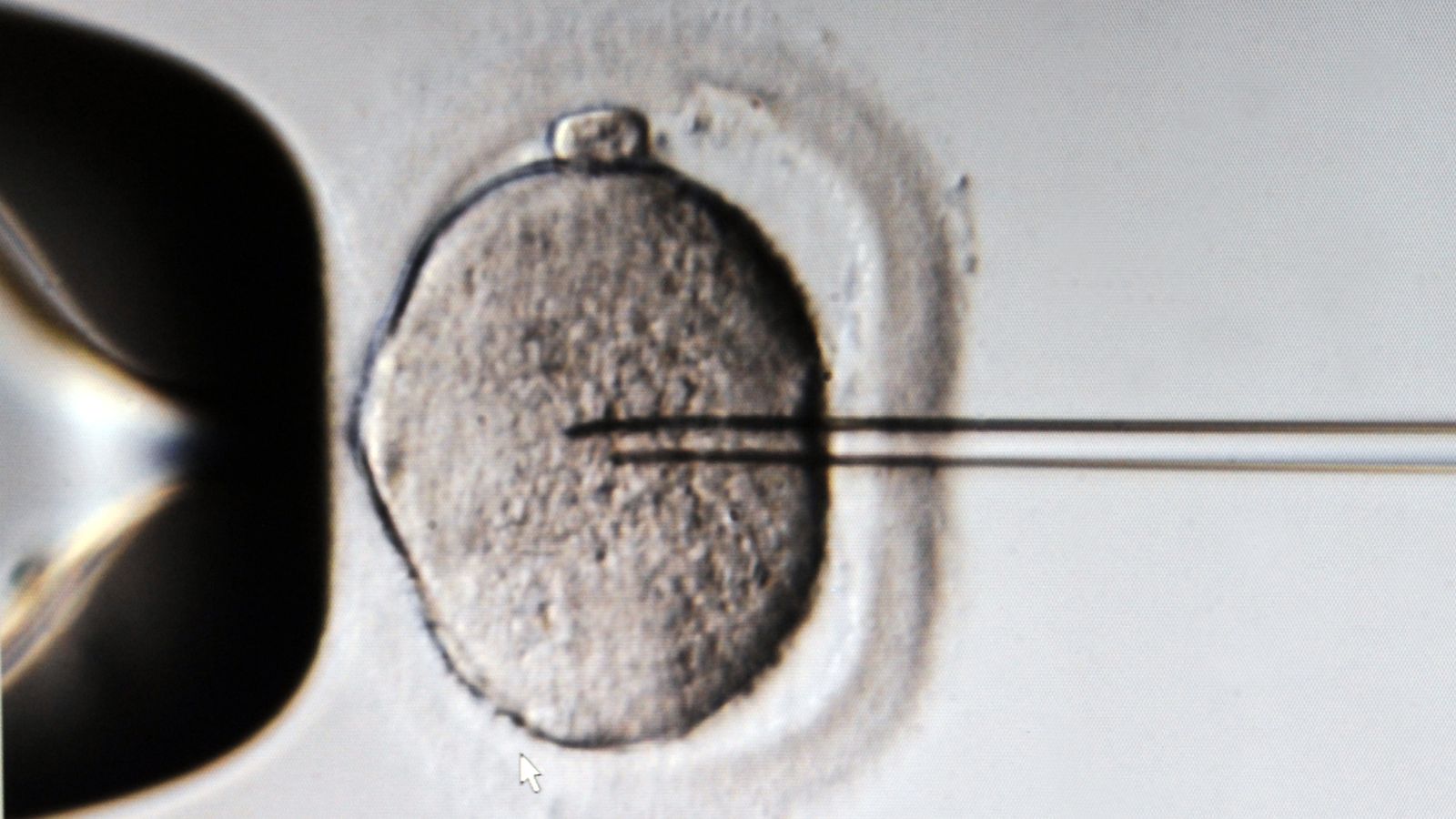IVF: More than 100 patients at Guy's and St Thomas' and Jessop Fertility 'exposed to faulty egg and embryo freezing liquid'
Freezing eggs or embryos is a standard part of fertility treatment, allowing women to have families later in life or before undergoing medical treatment for conditions such as cancer.

Fertility patients at two clinics in England have been exposed to a faulty egg and embryo-freezing solution that might have impaired their chances of having children, the industry regulator has said.
The defective liquid was used at the Assisted Conception Unit (ACU) at Guy's and St Thomas' Hospital, in London and Jessop Fertility, in Sheffield.
Human Fertilisation and Embryology Authority (HFEA) director of compliance and information Rachel Cutting, said on Wednesday it is only investigating what happened at Guy's and St Thomas', which has contacted 136 patients.
Ms Cutting said: "The company supplying the product directly to clinics will know exactly where it's gone through their traceability processes. The company is also obliged to report any problems to the MHRA.
"Any patients likely to have been affected will have been notified by their clinic. We hope this provides reassurance to anyone concerned."
Dr Jennifer Hill, Sheffield Teaching Hospitals NHS Foundation Trust medical director, told Sky News they identified 29 Jessop patients who had eggs or embryos frozen in August 2022, when they used the particular product batch.
She said: "We can confirm that 28 of those did not have the faulty fluid used to freeze their eggs or embryos. The remaining person was contacted at the time and did not require further actions to be taken."
A spokesman for Guy's and St Thomas' NHS Foundation Trust said its unit may have used the product in September and October 2022, before US firm Cooper Surgical issued an urgent safety warning in February last year.
The spokesman said they "did not know about the potential issue at the time eggs or embryos were frozen", admitting that the chances of frozen eggs or embryos surviving thawing may be adversely affected.
"We have contacted all of those affected and apologised for the delay in doing so and any distress this may have caused," the spokesperson added.
Freezing eggs or embryos is a standard part of fertility treatment.
Some women choose to freeze eggs so they can have families later in life while others may do so before undergoing medical treatment for conditions such as cancer.
Embryos are routinely frozen after IVF cycles - either to delay treatment for medical reasons or to give couples the option of more treatments in the future.
Sarah Norcross, director of infertility charity, the Progress Educational Trust, said the issue would be "distressing" for patients, as "when a woman freezes her eggs, time is of the essence".
"In all cases, the quality of eggs declines upon reaching a certain age. Additionally, in cases where women are freezing eggs for medical reasons they will not want their treatment to be delayed," she added.
Catherine Slattery, a specialist group actions medical negligence lawyer at Irwin Mitchell, said the "very worrying incident could potentially have devastating consequences for women, especially those who have had to go through the physical and psychological impact of cancer treatment".
"We've been contacted by some of the women possibly affected and are looking into their concerns further. Some women are based in London and received treatment at Guy's Hospital, while others are based elsewhere in England and Wales.
"It's vital that women receive the care and support they may need to get through this difficult time while this incident is investigated further."
-sky news







